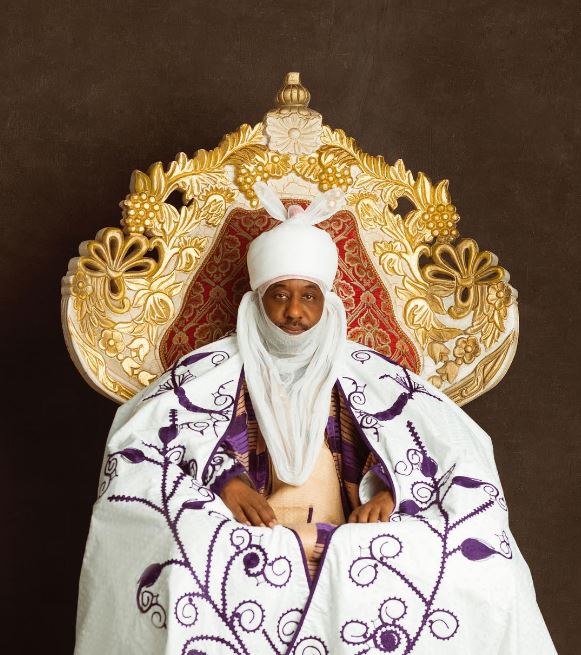Featured
Federal Character Should Be Based on Merit, Not On Ethnicity – Emir Sanusi Says

Worried by misapplication of the federal character principle, the Emir of Kano, Muhammadu Sanusi, said on Thursday that the principle should be based strictly on merit rather than on ethnicity.
Mr. Sanusi spoke at the 10th memorial lecture of Kehinde Sofola with the theme: “The Role of the Legal Profession in Nation Building: the Nigerian Context.”
The emir, who chaired the lecture, said the government should only ensure that representatives of the people in political, legal, or economic institutions in the country were drawn from suitably qualified individuals and not on ethnic considerations.
The News Agency of Nigeria (NAN) reports that the Federal Character Commission Act was promulgated in 1995 and later fused into the 1999 Constitution in the wake of agitations for fair share of political positions across the country.
In the guiding principles and formula for the distribution of all cadres of posts across the country, the Act stipulates in its Part 1 that (1) “Each state of the federation and the Federal Capital Territory shall be equitably represented in all national institutions and in public enterprises and organisations. (2) The best and the most competent persons shall be recruited from each state of the federation to fill positions reserved for the indigenes of the FCT.”
It was introduced to promote national unity and foster national loyalty instead of regional interests and eventually give every Nigerian a sense of belonging no matter anyone’s religion, language or ethnic group.
Mr. Sanusi said: “The issue of federal character should not be an excuse for nepotism; it should be based strictly on merit and not on family or ethnic sentiments.”
According to him, a true application of the federal character principle will help to preserve the rule of law in the country.
“As we live today, we must understand that it is our duty to respect the various institutions of our country.
“We cannot sit and watch as spectators as our institutions are being destroyed; to be a true Nigerian we must learn to look at our leadership and tell them where they are going wrong,” Mr. Sanusi said.
On human rights and liberty, the emir stressed the need for the society to pay attention to child rights.
“No religion permits infringement on the rights of any child. You find children in the streets hawking when they should be in school while some female children are even forced into marriage.
“Even the Sharia Law requires you to first seek the consent of your female child before giving her out in marriage and so the rule of law expects us to be law abiding,” he said.
Mr. Sanusi also urged leaders at all levels to obey the rule of law rather than being intoxicated with power, saying “power is transient”.
As leaders, he said, they should perform their duties diligently for the benefit and common good of the people in accordance to the laws of the country.
A rights lawyer, Femi Falana, a discussant at the lecture, called on lawyers to abide by the rule of law and shun every form of corrupt practices in court and in public life.
According to Mr. Falana, the rule of law demands that the country is governed by law and the constitution.
He appealed to leaders to ensure that the rights and liberties of the citizenry were protected, adding “this can only be done by adherence to the law.”
Mr. Falana condemned corrupt practices by judicial and political officers and urged citizens to stand up and fight corruption.
NAN also reports that the lecture was attended by the Edo governor, Godwin Obaseki, a political activist, Junaid Muhammed, Justice Bimbo Obaseki-Adejumo and senior lawyers. (NAN)






